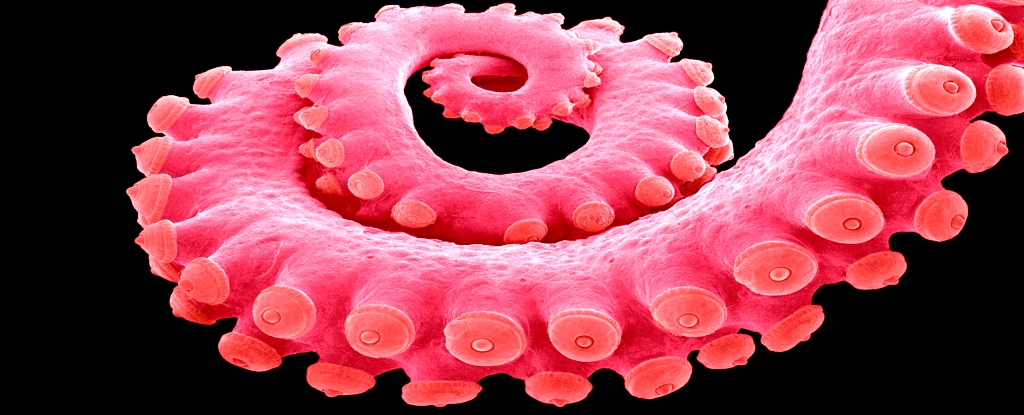Ocean bays that pinch West Antarctica are home to two distinct populations of Turquet’s octopus (Pareledone turqueti). The shared secrets of their ancestors do not bode well for the future health of our planet.
A new DNA analysis of the two geographically separated octopus populations indicates they were once part of one big family.
This direct historical connection suggests that around 125,000 years ago, the massive 2.2 million cubic kilometer (530,000 cubic mile) West Antarctic Ice Sheet (WAIS) that separates the two bays had fully collapsed into the sea.
Scientists who sequenced the genomes of octopus populations in both the Weddell and Ross Seas found evidence of ancestral gene flow between the two populations roughly 70,000 years ago, suggesting that “ancient seaways were likely opened across the West Antarctic Ice Sheet”.
“[This] could only be facilitated by West Antarctic Ice Sheet collapse during past interglacials,” they write.
If it happened then, it could very well happen again, especially since global temperatures are reaching a similar threshold today.
At the moment, scientists don’t really know whether West Antarctica is at risk of fully collapsing due to the climate crisis. It’s one of the major uncertainties left to solve in climate models.
While some experts warned of disaster in the region as far back as 50 years ago, other climate models made just 10 years ago predicted no significant ice loss in Antarctica within the century.
How wrong that turned out to be.
Today, West Antarctica is discharging melting icebergs the size of major metropolises much faster than the rest of the continent.
One of its glaciers is known as the ‘Doomsday Glacier‘ because if it collapses, it could cause 65 centimeters of sea level rise all on its own. Climate scientists recently warned the glacier was holding on “by its fingernails“.
So how long will the region continue to dangle on a cliff’s edge?
Of course, the past collapse was due to a natural cycle in Earth’s climate. It was not caused by rapid global warming, triggered by human fossil fuel emissions during what should be a planetary cold spell, as it is today.
If the entire West Antarctic ice sheet collapses from human-induced global warming, forming an archipelago in the southern ocean, the resulting environmental catastrophe is hard to fathom.
Scientists predict sea levels could rise by 3.3 to 5 meters (11 to 17 feet) around the world, overturning water circulation in oceans globally and drastically reshaping the coastlines of continents.
“Future WAIS collapse on centennial timescales is considered to be a low likelihood process,” researchers of the octopus paper write.
Yet even the most optimistic future models predict air temperatures will reach 1.2 to 1.7 °C by 2100, and as the authors point out, that is “the WAIS collapsed when the global mean temperature was similar to that of today, suggesting that the tipping point of future WAIS collapse is close.”
Currently, over half the ice shelves holding up the Antarctic ice sheet are on the brink of caving in, and if they crumble, it could possibly lead to irreversible losses.
If Turquet’s octopuses in the southern ocean are ever reunited with their long-lost family members, it will mean our planet has entered truly troubled waters.
The study was published in Science.
An earlier version of this article was published in June, prior to the research undergoing peer review.





